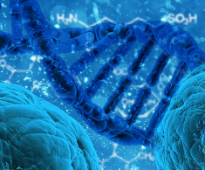pharmafileApril 23, 2019
Tag: SCID , modified version , HIV
Doctors at St. Jude Children’s Research Hospital have been able to treat patients with X-linked severe combined immunodeficiency (SCID-X1) – commonly known as ‘bubble boy syndrome’ – using a gene therapy based on HIV.

SCID is a rare, life threatening genetic disorder which causes children to be born without a properly functioning immune system. The condition is caused by a mutation in interleukin-2 receptor subunit gamma (IL2RG) gene, that produces a protein essential for normal immune function.
Named bubble boy syndrome after the measures taken in protecting children with SCID against infection, plastic bubbles are not currently the standard of care.
Rather, a bone marrow transplant from a tissue matched sibling donor is currently the best treatment for SCID. However 80% of SCID-X1 patients lack such a donor and thus rely on blood stem cells from other donors. This process is much less effective in curing SCID-X1 and is more likely to cause serious treatment-related side effects.
In taking a new approach, St Jude’s new gene therapy used a modified version of the HIV virus as a vector, to insert the IL2RG gene into the DNA of patients’ blood stem cells. The cells were then frozen and tested for quality before being infused back into patients.
Following treatment, most patients were discharged from hospital within a month. Within three months gene-corrected immune cells were present in the blood of all but one patient, who required a second dose of gene therapy.
"While longer follow-up is needed to assess any late effects of treatment, these results suggest most patients treated with this gene therapy will develop a complete durable immune response without side effects," Dr Mort Cowan, UCSF professor of pediatrics and principal investigator of the trial, said.
The results were published in the New England Journal of Medicine.
"We hope this therapy, which includes several novel features, will serve as a template for developing gene therapy to treat other devastating blood disorders," said co-author Stephen Gottschalk, M.D., chair of the St. Jude Department of Bone Marrow Transplantation and Cellular Therapy.
Register as Visitor to CPhI China 2019!

-----------------------------------------------------------------------
Editor's Note:
To apply for becoming a contributor of En-CPhI.cn,
welcome to send your CV and sample works to us,
Email: Julia.Zhang@ubmsinoexpo.com.


Contact Us
Tel: (+86) 400 610 1188
WhatsApp/Telegram/Wechat: +86 13621645194
Follow Us:




 Pharma Sources Insight January 2025
Pharma Sources Insight January 2025


